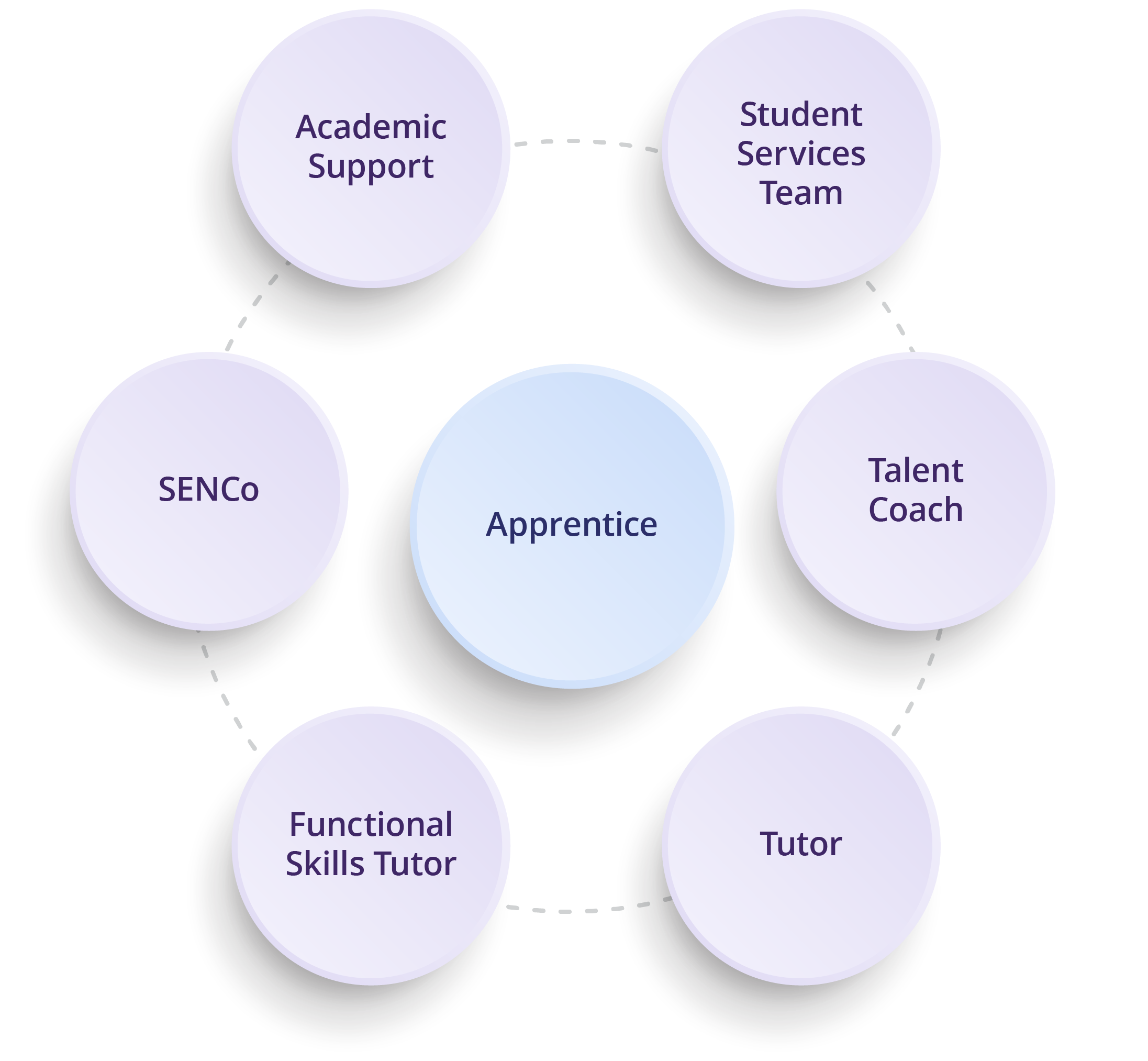
Here is what each person will be doing to support you:
Student Services Adviser Team
The student services adviser team is on hand to support you with your initial application including your application pack that includes the commitment statement. Going forward the team will be on hand should you have any technical issues logging onto your learning platforms.
Talent Coach
You will be allocated a Talent Coach, who will have formal reviews with you at intervals during your apprenticeship. They are also available to discuss your off-the-job training needs, helping you to stay on track with your apprenticeship journey and prepare you for End Point Assessment (EPA). You will be invited to an Induction Call with your Talent Coach in the early weeks of your programme.
They will then work closely with you and your Line Manager to support you in understanding your Apprenticeship, in particular providing the support and guidance you’ll need to ensure you have every opportunity to learn effectively in the workplace.
At EPA stage they will help to prepare you for all your assessments, ensuring you are in the best possible place to succeed. Formal interactions between you and your Talent Coach will vary but as a minimum there will be a structured review at least quarterly with informal contact throughout. If you have any questions or concerns you can, of course, contact your Talent Coach in the meantime.
Expert Tutor
As part of your Apprenticeship, you will be allocated an Expert Tutor from CICM who will discuss with you a learning plan of support for each unit. Your Expert Tutor will provide technical support whilst you are on programme, and will be an experienced Credit professional.
Your Tutor will contact you on a monthly basis, to check your progress but it is up to you to contact your Tutor as and when you require support and guidance Your Tutor will help you with areas where you identify you need more in-depth understanding and will be available via email and telephone.
Your Tutor will support you in preparation for your examination.
Special Educational Needs Co-ordinator (SENCo)
If you require specific support due to a diagnosed condition Kaplan can support you with additional resources. If you need clarification on reasonable adjustments you may be eligible for or require support in your reasonable adjustment applications to any professional bodies for your exams, your Talent Coach can put you in touch with our SENCo.
Line manager
Your Line Manager plays an integral role in the Apprenticeship. As well as developing you as an individual they will support you by giving you exposure to new experiences within the business, motivating you and discussing progress with you regularly through 1-to-1s.
Your Line Manager will also keep in touch with your Talent Coach to ensure consistency of support.
Booking exams
You will be contacted by CICM to remind you to book your exams. Please remember exams are only available in certain months (January, June and October). Once you are ready to sit an exam you must let your Expert Tutor and Talent Coach know, they can then make arrangements for you to sit the exam.
We strongly advise that you do not book your exam until you have spoken to your Talent Coach or Tutor.